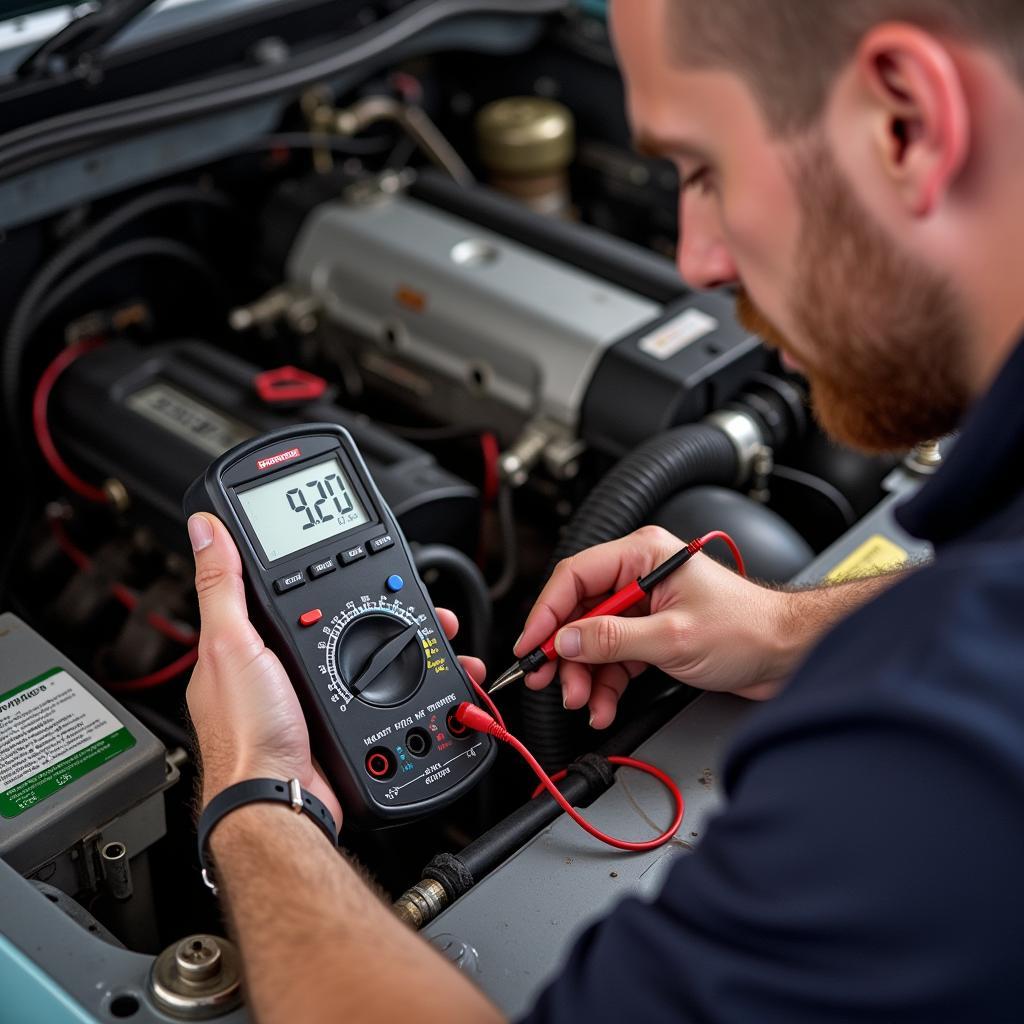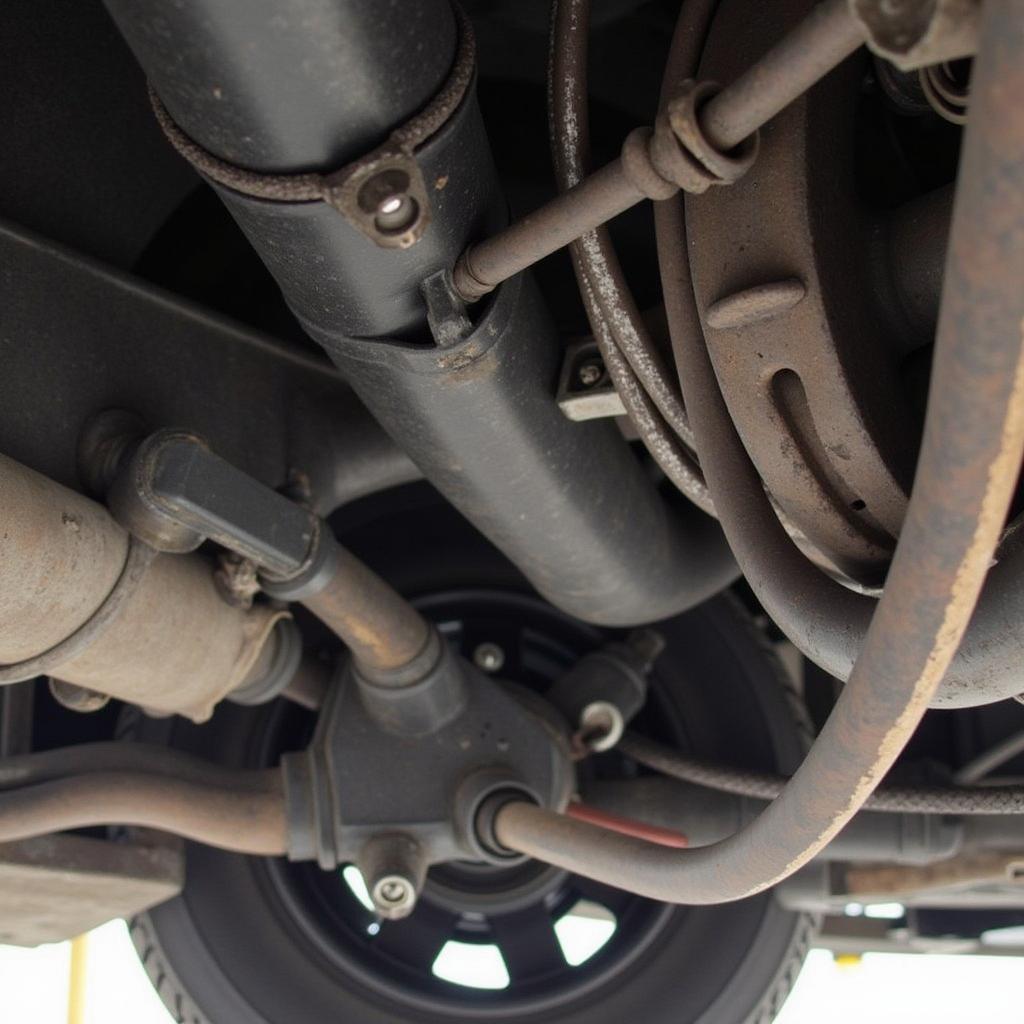A new car battery that won’t hold a charge can be incredibly frustrating. You’ve just replaced the old one, expecting a smooth start, only to find yourself facing the same issue. This article will guide you through the potential causes and solutions for a new car battery not holding its charge. We’ll cover everything from faulty installations to parasitic drains, giving you the knowledge to diagnose and fix the problem. Read on to get your car back on the road.
Why is My New Car Battery Not Holding a Charge?
Several reasons can explain why your new battery is draining. Let’s explore some of the most common culprits:
- Incorrect Installation: A new battery, if installed incorrectly, can lead to charging issues. Loose terminals or corroded cables can disrupt the flow of electricity. Double-check your connections to ensure they are tight and clean.
- Faulty Alternator: The alternator is responsible for charging the battery while the engine runs. If the alternator is faulty, it won’t replenish the battery, leading to a drained battery even if it’s brand new.
- Parasitic Drain: Even when your car is off, certain systems continue to draw power. A malfunctioning component or a forgotten interior light can drain your battery overnight. This issue is covered in more detail in our article on causes of battery discharge in car.
- Bad Battery: While less common with a new battery, it’s possible to get a defective one right out of the box. A bad battery cell within a new unit can prevent it from holding a charge.
- Driving Habits: Short trips, especially in cold weather, can prevent the alternator from fully charging the battery. If you primarily drive short distances, consider using a battery maintainer to keep the battery topped off.
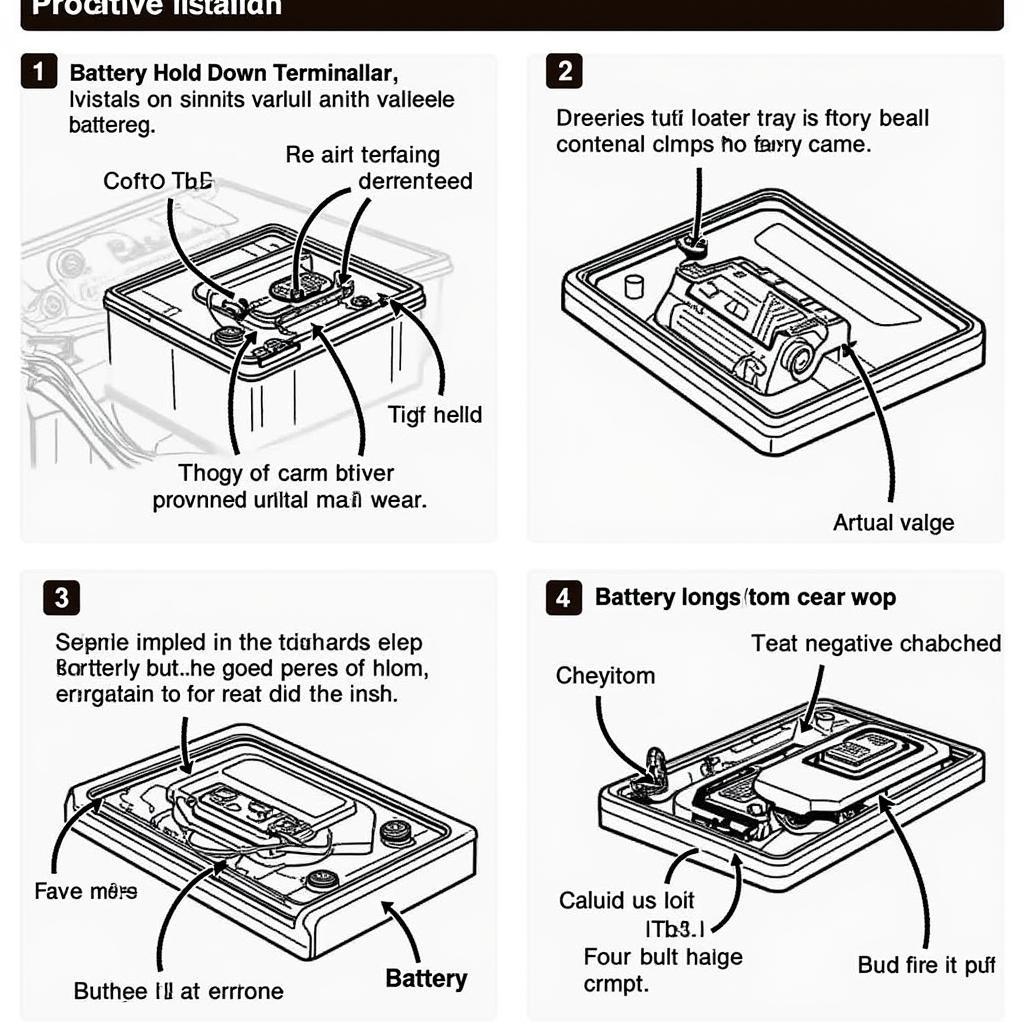 New Car Battery Installation Process
New Car Battery Installation Process
How to Diagnose a New Battery Not Holding Charge
Diagnosing the problem requires a systematic approach:
- Check the Terminals: Inspect the battery terminals for corrosion or looseness. Clean them with a wire brush and baking soda solution if necessary. Ensure they are tightly connected.
- Test the Alternator: Use a multimeter to check the alternator’s output voltage. It should be around 14 volts when the engine is running. A lower reading indicates a potential alternator problem.
- Look for Parasitic Drains: Use a multimeter to measure the current draw with the car off. A high reading suggests a parasitic drain. Systematically remove fuses to identify the culprit circuit. You can learn more about this problem in our article, battery in car keeps draining.
- Have the Battery Tested: Even a new battery can be faulty. A load test can determine if the battery is holding a charge properly.
How Can I Fix a New Car Battery That Won’t Hold a Charge?
The solution depends on the diagnosed problem. Here are some common fixes:
- Tighten or Clean Terminals: If the terminals are loose or corroded, cleaning and tightening them might solve the issue.
- Replace the Alternator: A faulty alternator needs to be replaced to ensure the battery is charged correctly.
- Eliminate Parasitic Drains: Identifying and fixing the source of the drain will prevent the battery from discharging prematurely.
- Return the Battery: If the battery is faulty, return it for a replacement under warranty. It’s important to remember that even brand new batteries can be defective. Sometimes, even a new battery doesn’t solve starting problems, as discussed in our article brand new battery car still wont start.
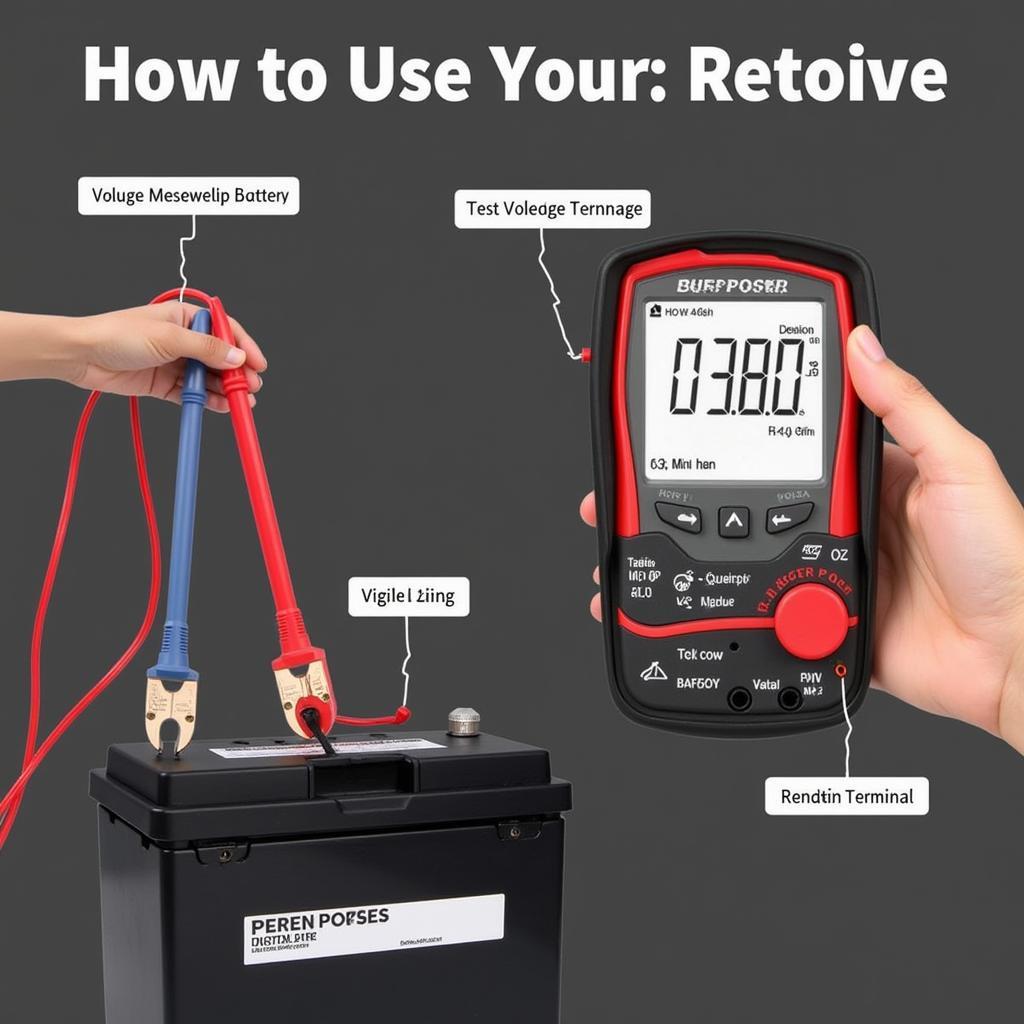 Testing Car Battery with Multimeter
Testing Car Battery with Multimeter
What if My New Car Battery Keeps Dying?
If your new battery continues to die despite addressing the above issues, consider these additional factors:
- Extreme Temperatures: Extreme heat or cold can significantly impact battery performance. Make sure your battery is appropriate for your climate.
- Age of the Battery (even if “new”): Batteries can deteriorate over time, even if they haven’t been used. Check the manufacturing date on the battery.
“A common misconception is that a new battery automatically solves all starting problems,” says John Smith, ASE Certified Master Technician. “Often, the underlying cause, such as a faulty alternator or parasitic drain, remains unresolved, leading to the new battery discharging as well.”
Why is My Brand New Car Battery Draining Overnight?
Overnight battery drain is often caused by parasitic draws. These can be challenging to pinpoint. Anything from a faulty glove box light to a complex electrical issue can be the culprit.
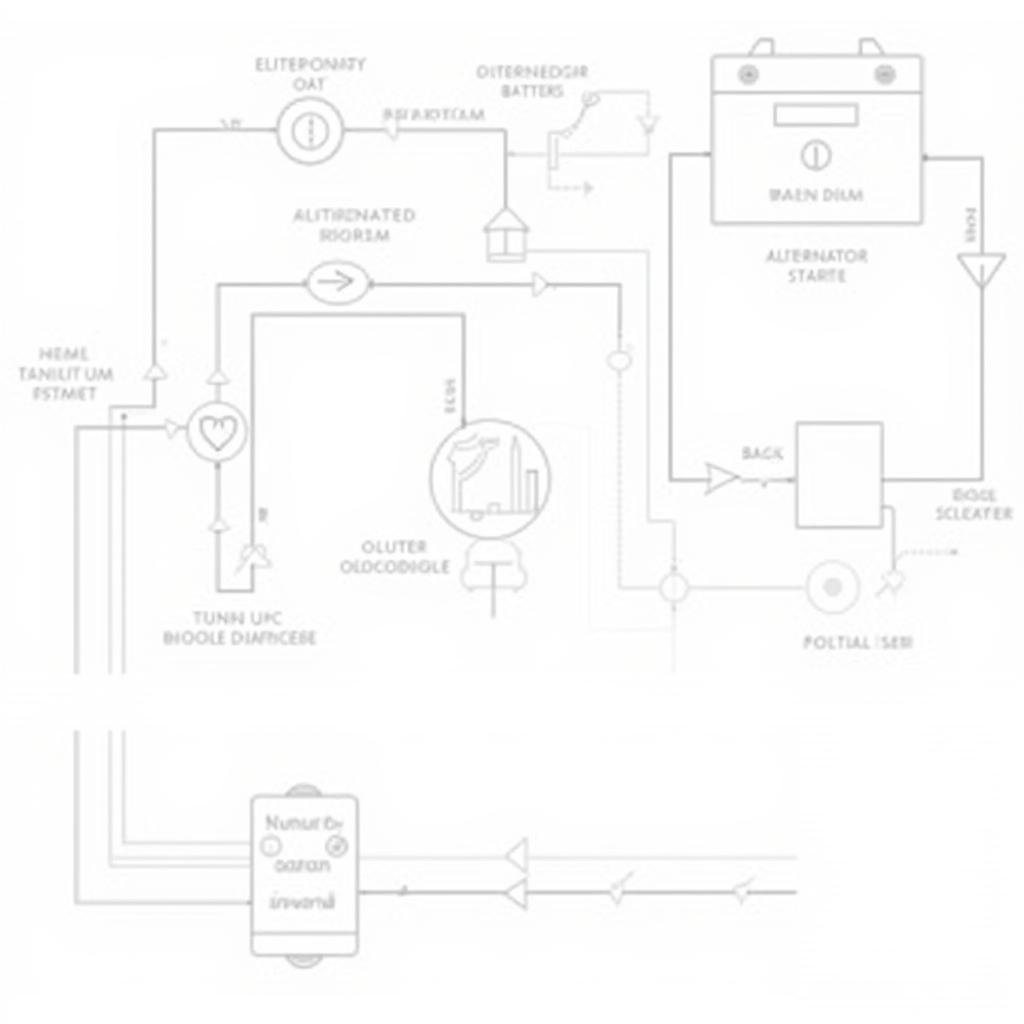 Car Electrical System Diagram
Car Electrical System Diagram
Preventative Measures for Maintaining a New Car Battery
- Regularly Clean Terminals: Keep the battery terminals clean to ensure a good connection.
- Limit Short Trips: If possible, avoid excessive short trips, especially in cold weather.
- Use a Battery Maintainer: Consider using a battery maintainer during periods of inactivity or for vehicles driven infrequently. This is particularly helpful for those dealing with key fob battery replacements, as seen in our article about jeep renegade key fob battery replacement.
- Check for Recalls: Occasionally, there might be recalls related to electrical systems. Check with your manufacturer to ensure your vehicle is not affected.
“Investing in a good quality battery and addressing any underlying electrical issues is crucial for long-term vehicle reliability,” adds Sarah Johnson, Automotive Electrical Engineer. “Regular maintenance and preventative measures can significantly extend the lifespan of your car battery.”
In conclusion, a new battery not holding a charge can stem from various factors, including improper installation, a faulty alternator, or parasitic drains. By systematically diagnosing and addressing the root cause, you can resolve the issue and ensure your new battery performs optimally. If your new battery won’t hold charge, don’t hesitate to seek professional help.


